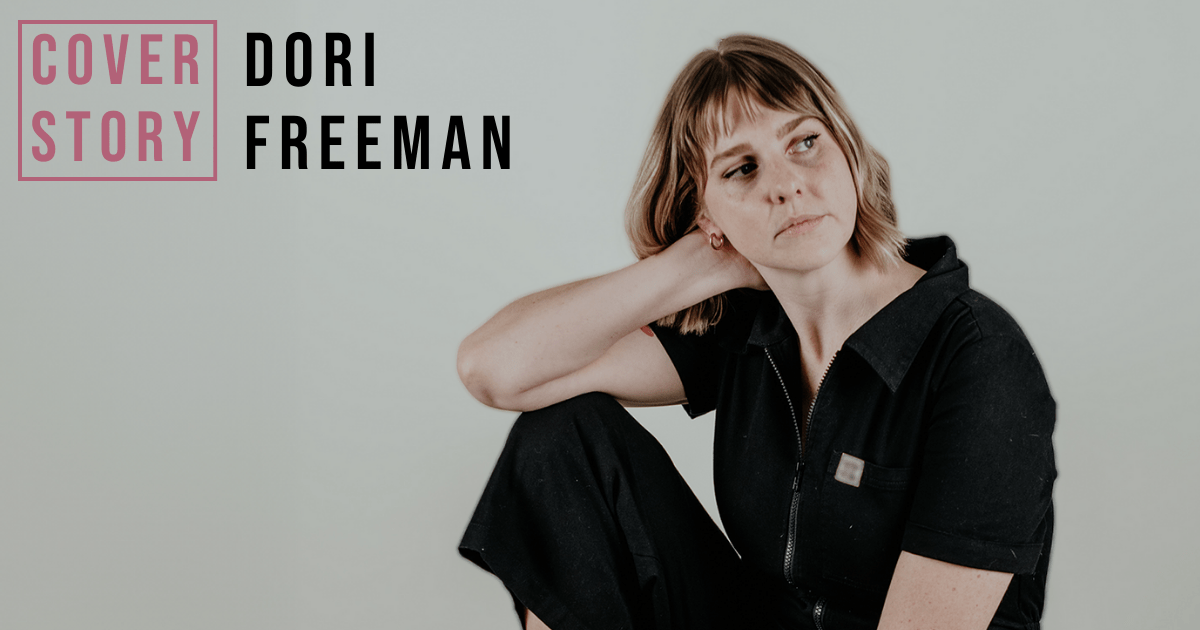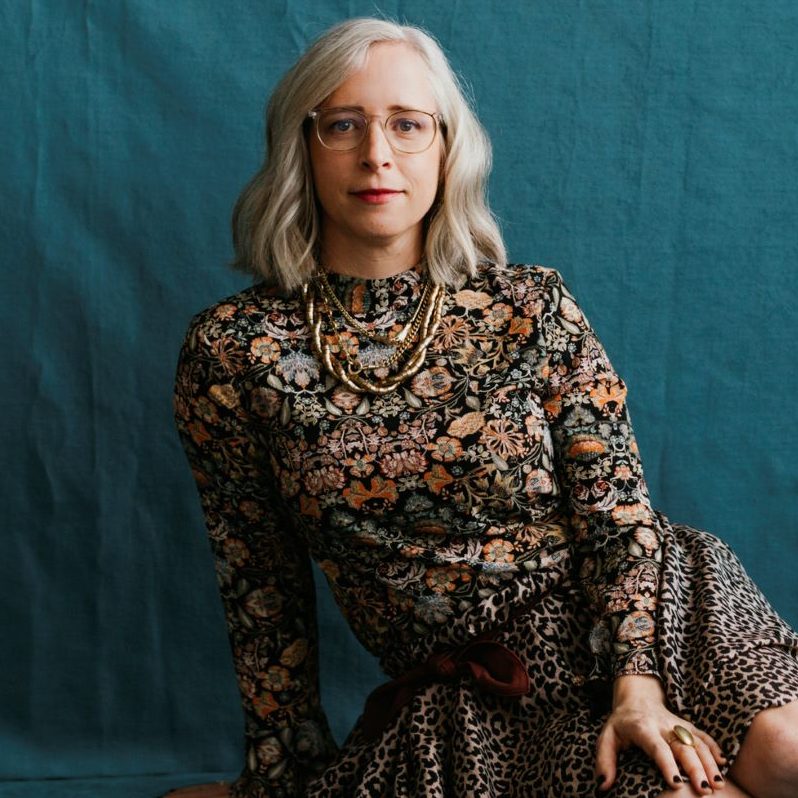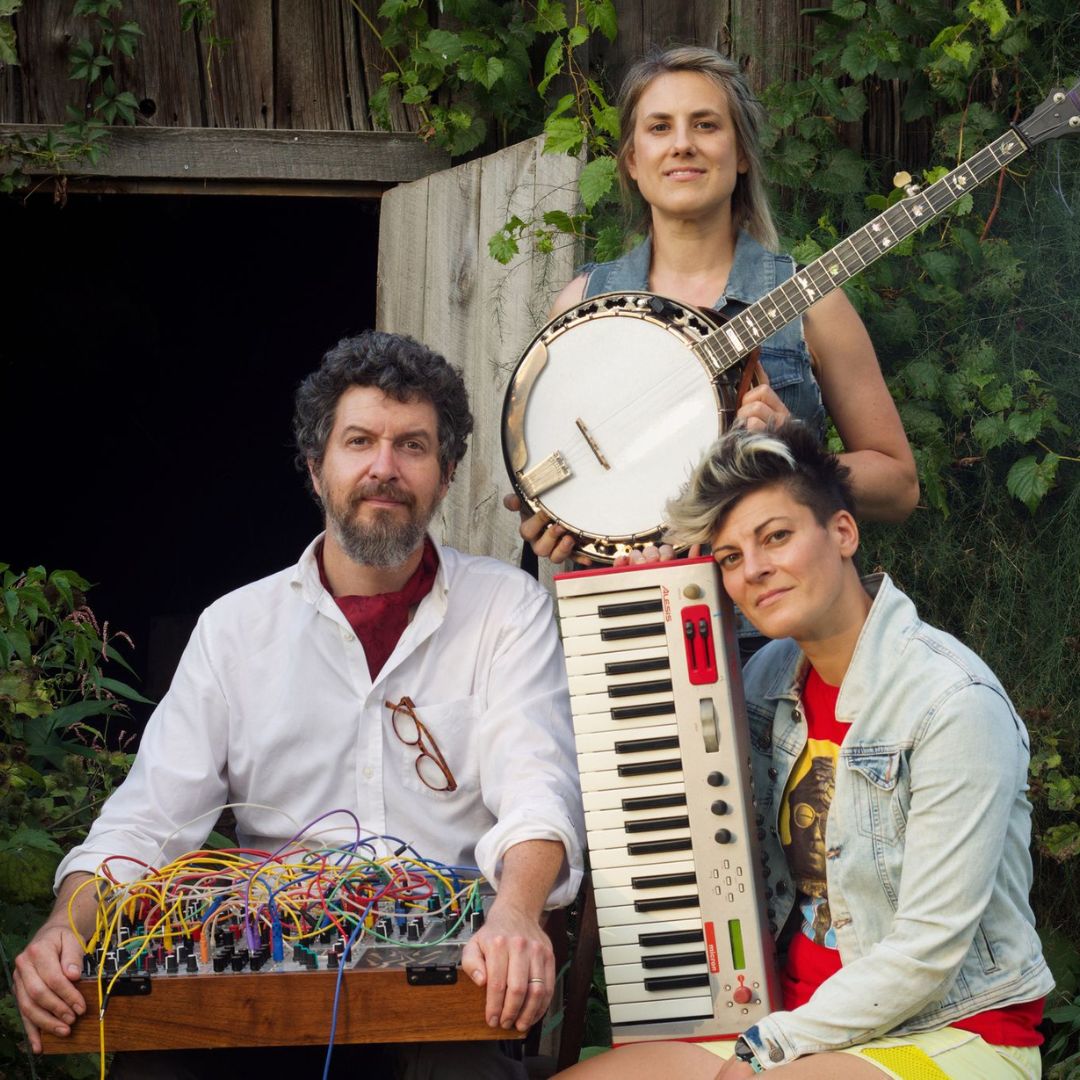One of the most stunning and enjoyable albums of 2023 was released in mid-November by Galax, Virginia-based singer-songwriter Dori Freeman. Entitled, Do You Recall, it’s a vibrant and energetic collection of eleven original songs that also feel cozy and down home, like a back porch jam or guitar pull – there’s a buzz in the air, but no overhanging urgency. It’s pure fun, but it’s also earnest and, at times, devastating.
That homey sense, pervasive and enveloping on Do You Recall, is thanks in no small part to Freeman and producer, her husband, drummer Nicholas Falk, having tracked the entire album in their backyard studio. But these tracks don’t feel antiquated or pastoral, and they certainly do not evoke a revisionist, white-washed, or sanitized rural ideal. There’s no preaching or authenticity signaling undergirding these songs, they’re simply genuine representations of Freeman and Falk intentionally following or guiding each song to its best, natural endpoint.
Freeman has decidedly re-centered her career and her music making away from so-called Music Cities – like Nashville and New York City – over the course of her five critically-acclaimed albums. She clearly feels no need to peacock or to raise a middle finger to the Music Industry, or play to “outlaw” narratives in country. Rather, she and her creative community have deliberately shifted the focal point of her songs and albums away from industry currencies and social or political structures bit by bit, click by click. As a result, her music truly shines – and certainly reaches audiences that see and appreciate that deliberation. Each of her prior albums are testaments to this growth and action, but Do You Recall may be Freeman’s best to date.
Our Cover Story conversation began discussing this shift away from music industry models and naturally and languidly, as the album, touched on agency, nuance and complication in Appalachia, solidarity and class consciousness, and so much more.
BGS: I wanted to start by asking you about how your priorities maybe have shifted in relation to the music industry? I sense that there’s this insulation between you and the capital M, capital I, “music industry,” whatever that means, right? It feels like you care less about what matters to the industry and more about what matters to you. And that feels so tangible in the music. Do you agree or disagree with that?
Dori Freeman: I do agree with that. I think I kind of always have written music from a perspective of not really caring – I never approach music through the lens of what would please a record label or what is going to be a song that people want to play on the radio or anything like that.
But I do think that perspective has only gotten stronger as I’ve gotten older. The longer I’ve written music, [the more] I write music that means something to me and that I hope will resonate with other people, because I find that the music that I’m drawn to is written in that same way. It’s music that is honest in the best way possible.
That honesty you’re talking about feels so homey, so grounded in your everyday. I think that’s part of what makes it feel like you’re not just giving a middle finger to the industry. It’s more that you’re re-centering what you do away from the industry record by record.
I would agree with that. It’s not that music isn’t a big part of my life – I mean, it obviously is, it’s the career that I’ve chosen – but as far as day to day goes, the majority of my life is spent living in a small town and raising a young daughter. That’s [why] I write a lot about both of those things. I don’t necessarily think those are really topics that record labels are begging to have more songs about, but that’s just what my life is and so those are the things that I write and sing about.
Can you talk a little bit about where you live? You live in Galax proper, yes?
Yeah, I live in Galax proper. I’m actually the last house on the street that I live on that’s technically still in Galax. The population in Galax is around 10,000, so it’s not very big. I’ve moved around a little bit in my life, but the majority of my life I’ve spent here in Southwest Virginia. And Galax in particular is a town that’s known for music. It’s like the self-proclaimed old-time music capital of the world, and we have a Fiddler’s Convention every year that’s one of the oldest. It’s known for music.
I mean, even the way that we – my husband and I – made this album [was] literally in our backyard. He built a timber-frame studio during the pandemic, so we recorded it here too, and at a much slower pace than I’ve ever had the privilege of making a record. In the past I’ve always had a strict timeframe, we have these four or five days and we have to have everything recorded in that amount of time. This time, it was just much more relaxed, and we could go out to the studio and work on one song for a couple days and then do another one the next week. It was just really refreshing to be able to approach it that way, compared to the way I’ve done it in the past. There are things that are really fun about recording in both of those ways. The pressure can be good, too, but it was nice to have a change of pace.
It may just be the time of year where all I want to do is cook something simmering on the stove all day long, but “Soup Beans Milk and Bread” — there’s so much in it that I, and I’m sure other listeners, can relate to. Especially the line, “You can’t lose something you don’t have.” That line bitch-slapped me, for real. In the best way. Can you talk about writing that one and where that line and that song came from for you?
I always find it a little difficult to articulate when I’m talking about Appalachia, just because I find it easier to write about it in song form, but I will do my best to try to talk about that.
It’s such a nuanced issue. I wrote that one – and then there’s another song on the record that’s also about growing up in Appalachia – and about the different layers of that and the different experiences you have here. The good and the more complicated.
In particular, the line, “You can’t lose something you don’t have.” I wouldn’t say I grew up poor, but I grew up not necessarily having a ton of stuff. But, in a lot of ways, I feel like I had a really happy childhood. Part of that line [is positive]. I mean, you can take it in a negative or more sad way, but it’s also, “Well, you can’t be unhappy about something that you didn’t ever have.”
If you grew up with less, a lot of times you just make the most of that and it ends up being better for you in a lot of ways. That line is definitely meant to be a double-edged sword. This area has been so taken advantage of by the government and by big business that it’s clear, yeah, you can’t lose something you never had, because we were never allowed to have it in the first place.
Another one that was my a favorite on the record is “Why Do I Do This to Myself.” I feel like I asked myself that question all the time!
It’s just such a universal feeling, I think. We all do these things to ourselves, certain things are good for you, certain thought patterns aren’t good for you – and you just can’t help it.
What you were hoping to accomplish musically and sonically with that one? Because it reminds me of classic Patty Loveless or like Terri Clark, very trad ‘80s or ‘90s country. Can you talk a little bit about what you were trying to get out of the production style on that?
Well, ‘90s country was definitely what we were going for with that one. I’m glad that came across with that track. I’ve got to give Nick a lot of credit for the production on a lot of these songs and for just picking out the musicians and for directing and deciding what the vibe would be for a lot of these songs. Our guitar player, Adam Agati, Nick hired him and they both came up with that real country lick, they kind of led the charge on that one.
You’re really playing with agency, I feel like it’s such a character in these songs – what are you choosing for yourself, what is being chosen for you, what’s being handed down to you, and how the speaker in your songs is kind of dancing around these things and talking about them.
I don’t know if I consciously approached it in that way, but I do think that it’s interesting – ‘cause you’re not the first person to bring that up. Someone else that I did an interview with said they felt the songs sort of felt like short stories that were part of the same book. After the fact, sometimes it’s like that. Sometimes you just write the batch of songs and then afterwards it becomes clear.
So I do see that in hindsight, but I don’t know necessarily if I was looking at it that way when I was writing songs, because I just write songs so individually. I’m not thinking of a theme when I approach writing songs for an album. It’s more just work on the songs individually and then hopefully they sort of come together in some sort of cohesive way.
Another thing, which I actually think has been a blessing in disguise, is that I’ve only had one album on an actual label. The subsequent four I’ve self-produced and put out on my own little label at home. I think that’s actually ended up being a good thing, because it has just left me without a lot of boundaries or feeling boxed in. I feel like I’ve had a lot more freedom to write about the things that I wanted to. It may be a smaller audience that I’m reaching and it may be a slower growth and a slower track, but actually, in the long run, I’m glad that I have done it the way that I have.
There are a couple more songs I wanted to ask you about. One is “Movie Screen.” It’s the one that feels most bluegrassy to me in some ways, and it feels very “mountain music,” which is always a nebulous term to me. “Movie Screen” is a story song, and it feels very specific, but it also feels so general and zoomed out and aspirational. It kind of reminds me of Dolly [Parton] and the way that she’d write songs about wanting to be the girl in the movie or on the radio or on stage.
[Laughs] Thank you for the Dolly comparison. I mean, I will always take that.
Yes, that is a really specific song. I wrote that song after becoming really obsessed with, during the pandemic, watching Peaky Blinders on Netflix and just having such a crush on Cillian Murphy, the lead actor in that. It’s pretty funny, because I wrote the song and my husband is one of the first people, if not the first person, I always share songs with. I play him this song and he immediately was like, “Oh, okay– so this is about that guy from Peaky Blinders?” Which is just so funny, because, my husband has brown eyes and there’s a very distinct line in the song about blue diamond eyes. It didn’t take him long to put that together. He likes to give me a hard time over that song. But it’s also about entertainment and movies and TV shows and books, as like an escape from reality and anxiety and all those things.
The other song you mentioned as being about growing up in Appalachia, “They Do It’s True,” it reminds me of Charles Booker’s political action group in Kentucky, Hood to Holler. There’s a line: “If you’ve ever lived on a mountain side/ in a little shack or a double-wide/ Then there ain’t no seat at the table for you.” That line is so striking, especially because it then continues by naming solidarity with women and with Black and Brown folks. It mades me think of Hood to Holler and this idea that in the holler and in the hood, we are more similar than we are different. I wondered if you could talk a little bit about that line in that song and where it came from for you?
That’s definitely what I was trying to write about in that song. I think one of the tactics that conservatives and people in higher positions in government love to use is to pit poor white people against poor Black people just to use that for their own gain. It’s another perspective that I think gets lost when people talk about the Appalachians. They think it’s just 100% white and people have this very specific idea of what it is, but there’s a large Black population. West Virginia has one of the most concentrated populations of transgender teens. There are Appalachian queer film festivals – there are a lot of things that get lost in that bigger message, because people [in power] don’t want us to have solidarity, because that would mean there would be actual change.
Another example of that is the way prisons often end up in poor and working class white communities, and then that’s how they pit Black and white people against each other again, because the white people are afraid of losing the work from the prison. So they want it to stay there, and it’s just a very vicious cycle. I think that it’s something that we should talk about more, because I think the wider audience doesn’t realize a lot of these things about Appalachia.
The class consciousness in the album and the way that you wove class into these songs feels so artfully done.
Appealing to the commercial side of things has never been something that I’ve felt the need to do. That goes back to what I was saying as far as having the freedom to write about what I want to and not being beholden to record labels or anything like that or agents. But it’s also because those are all just important things to me. I grew up in a really rural area and I’m bringing up my daughter in a rural area. I don’t ever want to romanticize the area in an unrealistic way, but I do think it’s important to have conversations as much about the negative things that we do need to improve as all the positive things.
I think that’s it’s really important for people from the area to continue to talk about all of this. In music and writing – and whatever other mediums. So that the rest of America can see that [Appalachia] is not just one stereotypical picture that they have in their heads.
Photo Credit: Kristina Lynn




